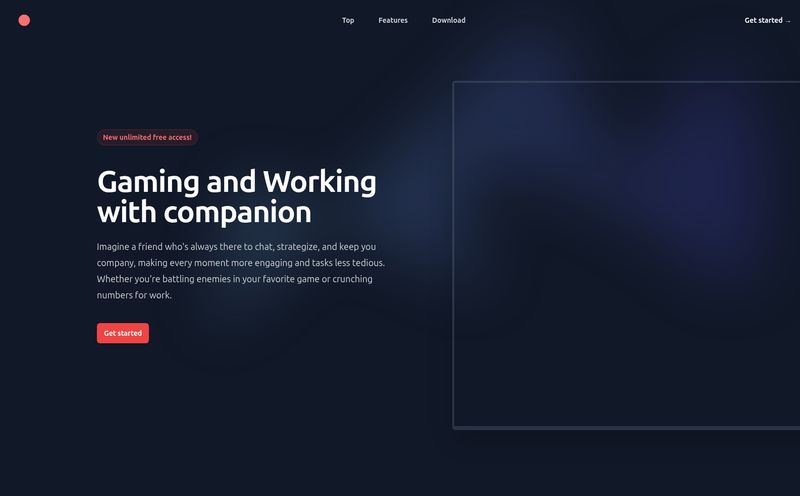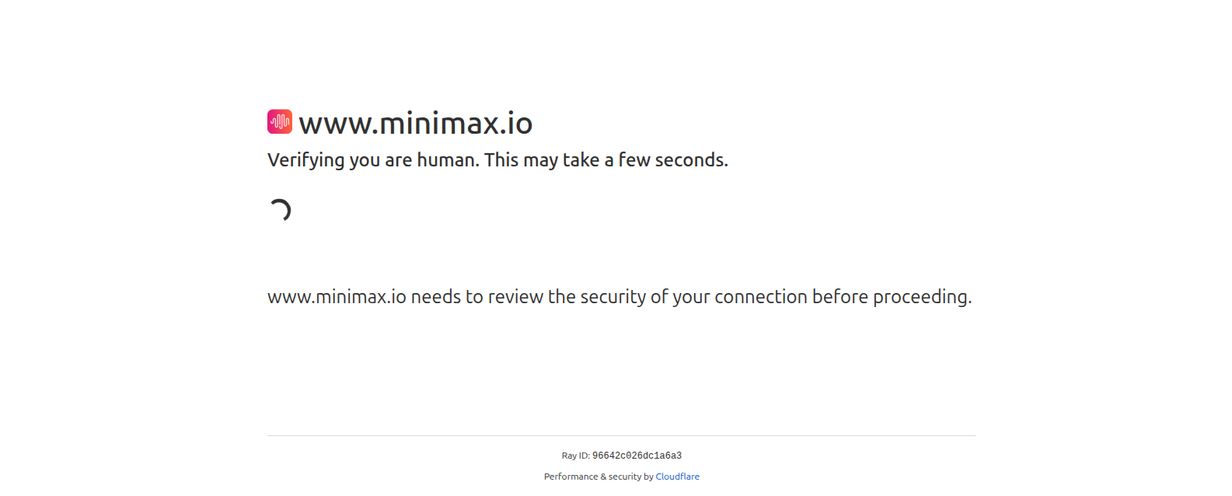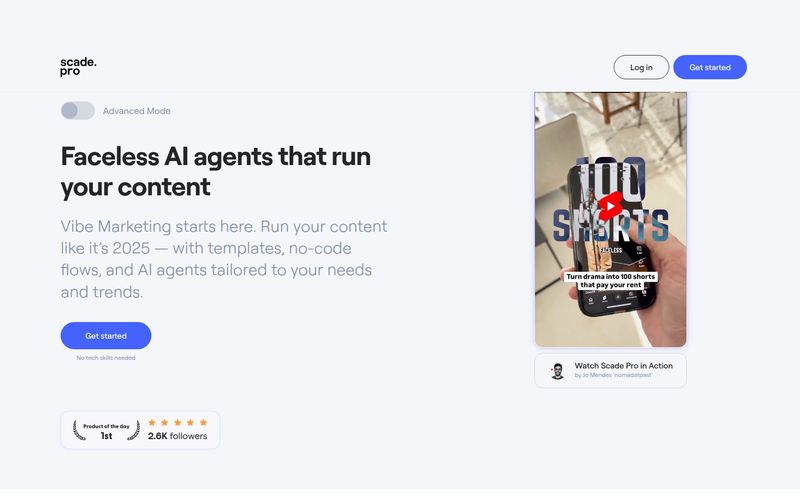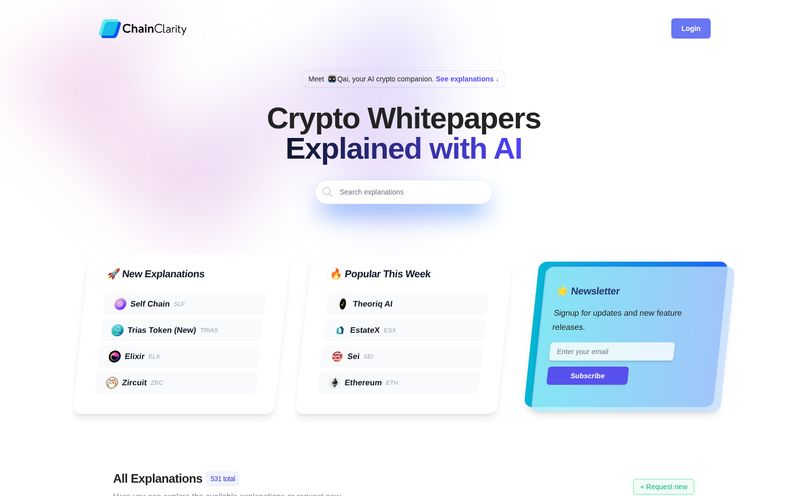If you’re a developer, a data scientist, or any kind of tech creative, I bet your hard drive looks a lot like mine. It’s a graveyard of brilliant ideas. Folders filled with half-finished Python scripts, meticulously cleaned datasets for a project that never launched, and that one genius API that you swore would change the world… if only you had the time to build a front-end for it.
It’s digital dust. And for years, we’ve just accepted that this is the way. We share things for free on GitHub, which is great for the community, or we let them rot. But what if there was another way? A way to put those assets to work.
I recently stumbled upon a platform called Ouro, and its tagline hit me right in the feels:
“Build Something Brilliant. Get Paid for It.”
Simple, right? Almost too simple. My inner cynic, honed by years of chasing CPC trends and seeing platforms rise and fall, immediately went on high alert. Is this for real, or just another beautifully designed landing page with a hollow promise? So I did what any self-respecting SEO nerd would do. I spent a weekend digging in. And what I found was… interesting. Really interesting.
So, What Exactly Is Ouro Anyway?
The best way I can describe Ouro is this: it's what you'd get if GitHub, Kaggle, and Patreon had a very ambitious baby. It’s a social platform, but not for sharing vacation pics. It's for sharing—and monetizing—the building blocks of technology. We're talking files, datasets, full-blown APIs, and text-based media. It’s a marketplace built specifically for people who create with code and data.
The entire vibe is about elevating the work we do from a hobby or a free contribution into a tangible, valuable asset. It’s a fundamental shift in thinking for a lot of us who grew up on the open-source ethos. And I’m not saying one is better than the other! But having the option to monetize is a powerful thing.
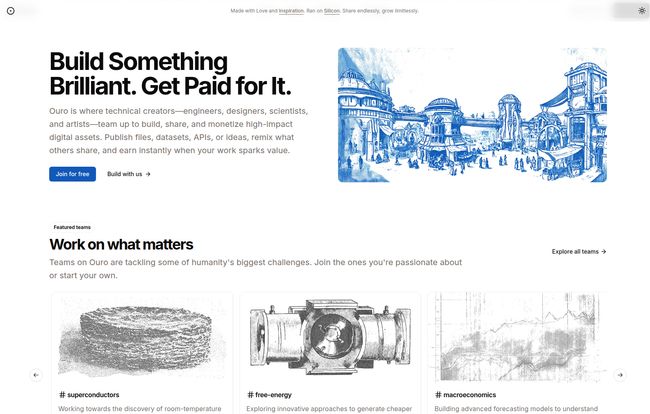
Visit Ouro
The Core Features That Actually Matter
A platform is just a collection of features, so let’s get into the ones that stood out to me.
Monetizing More Than Just Apps
This is the big one. For years, the “creator economy” has been about YouTubers, podcasters, and newsletter writers. And that’s awesome. But Ouro is asking, why not data scientists? Why not the person who wrote an incredibly efficient algorithm for image compression?
On Ouro, you can upload a dataset and sell access to it. You can wrap a piece of code in an API and charge per call. That utility script you wrote to automate a boring task? Someone else will probably pay a few bucks to use it. It’s like a digital garage sale for the highly technical, where your old projects could be someone else's treasure.
Team Up on Some Truly Wild Projects
This is the part that feels both inspiring and a little bit sci-fi. The homepage shows “Featured teams” working on things like #superconductors, #free-energy, and #macroeconomics. I mean, wow. Talk about shooting for the stars.
This isn't just about selling your old stuff; it's about active, collaborative research and development with a shared financial stake. It’s a fascinating model that blends the collaborative spirit of open source with the direct incentives of a startup. I'm curious to see if a team on Ouro actually cracks room-temperature superconductors. Talk about a traffic spike.
Let the AI Agents Do the Grunt Work
Okay, “AI agent delegation.” Buzzwordy? Yes. Intriguing? Absolutely. The documentation is still a bit high-level, but the idea, as I interpret it, is to allow autonomous AI agents to interact with the assets on the platform. Imagine an AI that can pull data from a monetized dataset, process it using a monetized API, and then deliver a summary, all while handling the micro-transactions in the background. It feels very 2024, and if they pull it off, it could be a genuine game-changer for automating complex workflows.
Let's Talk Money: The Ouro Pricing and That Big Fee
Alright, let’s get to the brass tacks. How much does this cost? The pricing model is pretty straightforward, which I appreciate. No one likes hunting through 15 pages to find the real price.
| Plan | Price | Key Features | Platform Fee |
|---|---|---|---|
| Free | $0 /month | Create assets, join teams, basic analytics. Perfect for exploring. | N/A |
| Gold | $5 /month | Everything in Free + Monetize your assets, advanced analytics. | 30% |
| Organization | $10 /user/month | Everything in Gold + Private context, team permissions, dedicated support. | 10% |
The Free tier is generous. You can get a feel for the entire ecosystem without paying a dime. But the real action starts with the Gold plan. For $5 a month, you can flip the switch and start earning.
Now, we have to talk about the elephant in the room: that 30% platform fee on the Gold plan. Oof. That's a tough pill to swallow. It’s the same cut Apple takes from the App Store, and developers have been complaining about that for a decade. On the other hand, platforms like Gumroad or Patreon have fees that are significantly lower.
In my experience, you have to weigh what you're getting. Ouro provides the hosting, the payment processing, the API infrastructure, and potentially, an audience of buyers. Is that worth 30%? For a solo creator just starting out, maybe. If you make $100, you keep $70 you wouldn't have had otherwise. The Organization plan's 10% fee is far more reasonable and makes this a very attractive proposition for small agencies or research teams.
Who Is This Actually For?
After playing around, I think Ouro has a few ideal user profiles:
- The Data Scientist with a Golden Dataset: You spent six months cleaning and labeling a niche dataset. Instead of just writing a paper about it, you can monetize the data itself.
- The API Wizard: You've built a clever microservice—maybe for sentiment analysis or image resizing. You can put it on Ouro and earn passive income every time someone calls it.
- The Collaborative Researcher: You're part of a university or independent group. The Organization plan could be a fantastic way to manage your team's digital assets and even generate some funding by sharing your work with the wider community.
- The Side-Project Hoarder (aka, me): You have dozens of useful scripts and tools. Why not package them up and see if they can earn you some coffee money? Or, who knows, maybe even rent money.
It's probably not for someone who just wants to sell a simple ebook or a video course. There are more established, lower-fee platforms for that. Ouro's stregnth lies in its technical focus.
Frequently Asked Questions
- Can I really make money on Ouro?
- The potential is there, yes. But like any marketplace, it depends on the quality of your product and whether there's demand for it. It's not a magic money button; it's a storefront for your digital work.
- What’s the catch with the free plan?
- There's no real 'catch'. The free plan is fully functional for creating and sharing work within teams. You just can't monetize your assets until you upgrade to the Gold plan.
- Is the 30% platform fee on the Gold plan negotiable?
- I highly doubt it for an individual. That fee is likely set to cover their infrastructure and operational costs. The path to a lower fee is the Organization plan, which drops the rate to a much more competitive 10%.
- How is Ouro different from GitHub Sponsors or Patreon?
- GitHub Sponsors and Patreon are primarily for supporting a person or a project. Ouro is for buying and selling the discrete assets created by that person or project—the dataset, the API, the file. It's a more granular, transactional model.
- Do I need to be a top-tier programmer to use Ouro?
- Not necessarily. While it's built for a technical audience, if you can create a valuable dataset or a well-documented file, you can participate. The barrier is more about the value of the digital good than your coding prowess.
- What kind of AI agents can I use on the platform?
- This feature is still emerging. The concept is that you or others can build AI agents that are authorized to interact with the platform's APIs and data. Think of them as autonomous workers that can perform tasks on your behalf, powered by the resources available in the Ouro ecosystem.
So, Should You Sign Up for Ouro?
Look, Ouro is ambitious. It's trying to build a new kind of economy for a group of creators that has been historically underserved in the monetization space. I'm not going to tell you it's a guaranteed path to riches. The platform's success will ultimately depend on its ability to attract a critical mass of both high-quality creators and willing buyers.
But am I intrigued? Absolutely. I'm cautiously optimistic. The idea of turning my digital dust into even a small, recurring stream of income is incredibly appealing. That 30% fee on the Gold plan gives me pause, but the free tier makes it a no-risk proposition to get your feet wet.
My final take: If you're a technical creator with valuable assets sitting on a hard drive, you owe it to yourself to check Ouro out. Create a free account, upload a small project, and see what happens. Who knows? That old script you forgot about might just be someone else’s perfect solution.
Reference and Sources
- Ouro Official Website
- Ouro Pricing Page
- An Article on Creator Economy Platform Fees (for comparison)
